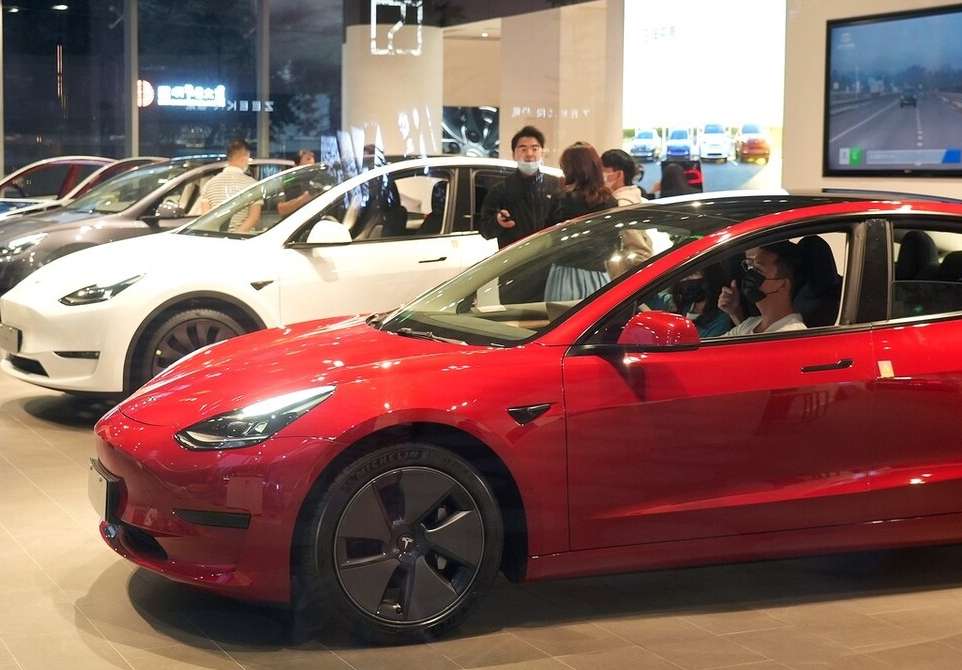Tesla Plunges 9% Again
Advertisements
The meteoric rise of Tesla, once heralded as a beacon of innovation in the electric vehicle market, has taken a dramatic turn. As of late November, the company has witnessed a staggering decline in its stock price, with values plummeting to new lows nearly every day since December 12th. This decline has escalated recently, with the stock dropping over 10% in a single day, resulting in the company's market capitalization sinking beneath $390 billion.
For many investors, the continuously falling stock prices have led to significant financial hardships. As the stock spirals downward, a mounting number of financing positions have been liquidated, leading to considerable losses among Tesla stockholders. It has drawn comparisons to the crisis Tesla faced years ago when it teetered on the brink of bankruptcy – now, a different sort of crisis appears to be looming.
But what’s driving this dramatic collapse? At the heart of the issue lies the unraveling of the myth surrounding Tesla’s invulnerability in a high-demand market. For years, investors believed Tesla's products were immune to market fluctuations. Previously, Tesla was facing potential bankruptcy due to its inability to meet overwhelming consumer demand; however, the thirst for Tesla vehicles seemed insatiable. It was a cycle where production output reflected the endless consumer desire – a dynamic that horrified traditional automakers but dazzled investors, who struggled to pinpoint a ceiling to Tesla's sales potential.
Due to this belief, the company enjoyed extraordinary valuations, with price-to-earnings ratios reaching astronomical figures. Investors would respond euphoria to the opening of a new factory or eagerly anticipate Elon Musk’s optimistic declarations, which often sent stock prices soaring. Between 2018 and 2021, Tesla’s stock prices skyrocketed by an astounding 2000%, outpacing competitors in the crowded electric vehicle market.

In the competitive Chinese market, the landscape turned even harsher for Tesla. Following the launch of the Model 3 and Model Y, no new vehicles were introduced, which hindered ongoing sales momentum. Competitors like BYD surged past Tesla in terms of sales, anchoring the automaker in the lucrative yet contested second position in the market. To counter this untenable situation, Tesla resorted to a price cut for its models produced in China, slashing the price of the Model 3 and Model Y by 5% to 9%, and taking additional measures to offer cash incentives tied to insurance packages.
In Europe, the picture was no less grim, with Tesla struggling to maintain its market share against German automotive giant Volkswagen and its subsidiaries, which began to eclipse Tesla in electric vehicle sales.
The most alarming shift reflects the changing expectations and sentiments among investors. Analysts from various financial institutions have begun to reduce their target price for Tesla dramatically. For example, Deutsche Bank analyst Emmanuel Rosner recently cut their Tesla target price to $270, while the investment firm Evercore ISI lowered its price target from $300 to a disheartening $200. Commentators have noted that the emotional backing for Tesla stocks is beginning to crumble, signaling a critical loss of investor confidence.
Faced with these formidable challenges, Musk could no longer afford to maintain his position as the CEO of Twitter, detached from Tesla’s pressing predicaments. In light of Tesla's precarious financial situation, he announced that over the next 18 to 24 months, he would refrain from selling any Tesla stocks. Musk also confirmed his intent to step down as Twitter’s CEO, signaling a renewed focus on Tesla since he believes, in his words, “the complexity of Twitter is only about 10% of that of Tesla.”
The crucial question now is whether Musk’s return to the helm will be enough to stabilize Tesla and steer it back toward its former glory. The stock price has staggered downwards from around $400 to approximately $125; is there a real risk that it might fall to below $100 in the near future? The unfolding events surrounding Tesla not only highlight the volatile nature of the stock market but also underscore the fragility of investor sentiment in the face of rapidly shifting circumstances.